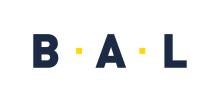H-1B and H-2 modernization, fee hikes and changes to the green card process top the Biden administration’s regulatory priorities on employment-based immigration, according to the semiannual regulatory agenda published this week. The administration also indicated it would propose regulatory changes related to certain nonimmigrants, including those who lose their jobs, in late 2024.
- H-1B modernization. The Department of Homeland Security will continue to accept comments on its wide-ranging proposed rule to modernize the H-1B program until Dec. 22. The agency must review the comments, formulate a final rule and send it to the White House Office of Management and Budget for review before publication. As discussed at a recent BAL Community event, DHS has said it is considering separating out provisions to bolster the H-1B registration process in an effort to implement them for the upcoming cap season.
- H-2 modernization. DHS is finalizing a rule that would “modernize and reform” the H-2A and H-2B programs. The agency published a proposal on Sept. 20 designed to reduce inefficiencies, enhance pay protections and address “aspects of the program that may unintentionally result in exploitation or other abuse of persons seeking to come to this country as H-2A and H-2B workers.” DHS accepted comments on the proposal through Nov. 20 and now must review the comments before publishing the final rule.
- USCIS fees. DHS plans to increase fees that U.S. Citizenship and Immigration Services charges for immigration services. In January 2023, USCIS published a proposal that would raise fees for immigration benefit requests by a weighted average of 40% — and more for most business categories. USCIS has said the increased fees would allow the agency “to more fully recover its operating costs, reestablish and maintain timely case processing, and prevent the accumulation of future case backlogs.” Business groups have said that while they understand USCIS must adjust its fees, the agency should take additional steps to improve services and reduce proposed hikes where possible. The regulatory agenda indicates DHS is aiming to publish the final fee rule in April 2024. The previous agenda had targeted March 2024.
- Lawful permanent residence (adjustment of status process). DHS is working on a proposal to amend the adjustment of status process. The agency says it will propose changes designed to “reduce processing times, improve the quality of inventory data provided to partner agencies, reduce the potential for visa retrogression and promote the efficient use of immediately available immigrant visas.” The agency is aiming to publish the proposal in March 2024.
- Lawful permanent residence (immigrant petitions). DHS is also planning to propose amendments to regulations governing employment-based immigrant petitions in the first, second and third preference classifications. The changes would include updating and modernizing provisions for individuals of extraordinary ability and outstanding professors and researchers. They would also include clarifying evidentiary requirements for first preference classifications, second preference national interest waiver (NIW) classifications and physicians of national and international renown. The agency is aiming to publish this proposal in August 2024.
- Nonimmigrant workers. DHS indicated it plans to publish a proposal in late 2024 to amend regulations related to certain nonimmigrants. The agency said the proposed changes would include updating employment authorization rules for certain dependent spouses; increasing flexibilities for some nonimmigrant workers, including those who resign or are terminated from employment; and additional measures to modernize policies and procedures for Employment Authorization Documents. DHS aims to publish the proposal in October 2024.
BAL Analysis: While the regulations would have a significant impact on immigration programs, they are at different stages in the rulemaking process, and policies are still being formulated. Proposed regulations are subject to a public notice-and-comment period, during which members of the public may submit feedback. BAL continues to monitor the regulatory agenda and will provide clients with updates on individual regulations as they move through the rulemaking process.




 />i
/>i
